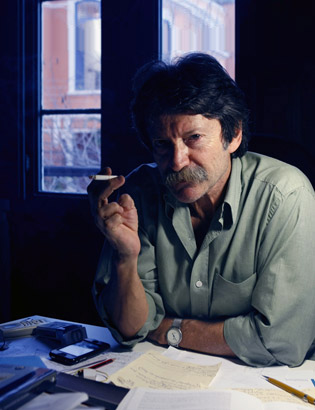|
 Français Français
 Jorge Mario Jáuregui is an architect and urbanist based in Rio de Janeiro, Brazil. He graduated from the National University of Rosário, Argentina, as architect, and at the Federal University of Rio de Janeiro as architect-urbanist. He has been
researching and working with the socio-spatial division between Rio’s favelas and the rest of the city since the 1990s. Jorge Mario Jáuregui is an architect and urbanist based in Rio de Janeiro, Brazil. He graduated from the National University of Rosário, Argentina, as architect, and at the Federal University of Rio de Janeiro as architect-urbanist. He has been
researching and working with the socio-spatial division between Rio’s favelas and the rest of the city since the 1990s.
Jáuregui’s studio located in Rio de Janeiro works with public and private clients on projects of public interest, in both the “formal” and “informal” areas of the city. Through his professional practice he has developed a critical-theoretical thinking on contemporary architectural and urban issues. His ideas have been widely published in architectural -and urban-focused media.
He is also associate researcher at the Laboratory of Morphology SICyT-FADU/UBA Buenos Aires, and a member of the Art and Psychoanalysis Cartel of the
psychoanalytic Letra Freudiana Institution in Rio de Janeiro.
Published four books on architecture, urban planning and society.
|
DOCTOR HONORIS CAUSA, Universidad Nacional de Rosário, Argentina |
|
SIXTH VERONICA RUDGE GREEN PRIZE IN URBAN DESIGN, Harvard University, Graduate School of Design, GSD. |
|
"GRANDE
PRÊMIO", 4a Bienal Internacional de Arquitetura de São Paulo. |
|
PREMIO TRAYECTORIA DE LA XIII BIAU, Bienal Iberoamericana de Arquitectura y Urbanismo, Lima, Perú.
 |
|
LA BIENNALE DI VENEZIA 2025, Expositor invitado de Intelligens.Natural.Artificial.Collective. |
|
PRIMER PREMIO DE INVESTIGACIÓN, III Bienal Iberoamericana
de Arquitectura, Santiago de Chile. |
|
WORLD EXHIBITION OF CONTEMPORARY ART, exhibitor invited by documenta12, Kassel, Germany. |
|
MUSEUM OF MODERN ART, MoMA, NY, exhibitor invited to "Small Scale, Big Change: New Architectures of Social Engagement". |
|
MUSEUM OF MODERN ART, MHKA, Antwerp, Belgium, exhibitor invited to "The Street", Europália. |
|
MUSEU DE ARTE DO RIO, MAR,Rio de Janeiro, Brazil, exhibitor invited to "O abrigo e o terreno". |
|
MAISON FOLIE DE WAZEMMES, Lille, France, exhibitor invited to "CARIOCAS!" Renaissance - Lille 3000. |
|
MUSEU DE ARTE MODERNA, MAM-SP, Brasil, expositor invitado de "Esquema Geral Revisitado - Brasil por multiplicação". |
Jáuregui is the author for more than twenty projects of the Favela-Bairro (“Slum-to-Neighborhood”) Program. This program, implemented by the Rio city government beginning in the 1990s, used architectural and urbanistic interventions to address social issues in the city’s favelas and bring a new potential to existing social and physical networks. Since 2007 he has been working on two large-scale urban redevelopment projects in the communities of Complexo do Alemão and Complexo de Manguinhos PAC (“Growth Acceleration Program”). These projects were opened in the end of 2010 and 2011 respectively. Other projects include site works related with the 2014 World Cup
Championship and 2016 Olympic Games.
And also the Domingo Savio Urbanization, the Zona Oriental and the Zona Colonial, in Santo Domingo, Dominican Republic.
AUTOBIOGRAFÍA PROFESIONAL
Tal vez la característica más marcante de mi actuación profesional tenga que ver con el hecho de la transformación de militante político-técnico en Argentina, a una militancia técnico-política en Brasil, que tiene como eslabón conector principal la consideración de lo urbano-social como una amalgama.
Por este motivo la actividad profesional está estrechamente relacionada con las circunstancias que rodean la elaboración de mis proyectos. Circunstancias políticas, sociales, económicas, culturales y de contexto.
Podría hablar de un camino a través de las obras que va desde las intervenciones en la ciudad formal, a cada vez más y más envolvimiento en intervenciones en la ciudad informal. En los dos casos, intervenciones que buscan transformar un contexto y no simplemente adaptarse a él, permitiendo un feed-back entre concepción y puesta en práctica, actuando de manera libre, sin sentirme vinculado a ninguna ideología urbanística o arquitectónica particular, ni a técnicas o métodos específicos, buscando configurar un cierto tipo de lugar, en condiciones siempre acotadas.
El trabajo (proyecto) busca ser una atenta y puntual intervención a partir de la lectura e interpretación de las condiciones del lugar, de las necesidades puestas por el tema, de la “escucha” de las demandas, del ambiente que se mueve delante de mí y de la búsqueda de articulación entre el sitio específico y el contexto.
|